Jewish religious movements, sometimes called "denominations", include different groups within Judaism which have developed among Jews from ancient times. Today, the most prominent divisions are between traditionalist Orthodox movements ; modernist movements such as Conservative, Masorti and Reform Judaism; and secular or Hiloni Jews.

The World Zionist Organization, or WZO, is a non-governmental organization that promotes Zionism. It was founded as the Zionist Organization at the initiative of Theodor Herzl at the First Zionist Congress, which took place in August 1897 in Basel, Switzerland. The goals of the Zionist movement were set out in the Basel Program.
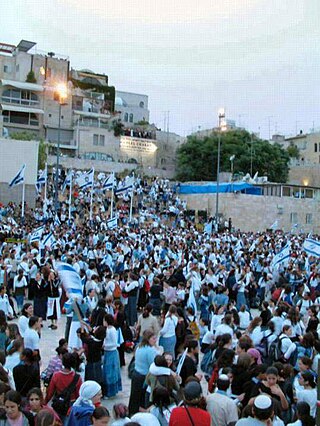
Religious Zionism is an ideology that combines Zionism and Orthodox Judaism. Its adherents are also referred to as Dati Leumi, and in Israel, they are most commonly known by the plural form of the first part of that term Datiim. The community is sometimes called כִּפָּה סְרוּגָה Kippah seruga, literally, "Knitted kippah", the typical head covering worn by male adherents to Religious Zionism.
Jewish political movements refer to the organized efforts of Jews to build their own political parties or otherwise represent their interest in politics outside the Jewish community. From the time of the siege of Jerusalem by the Romans to the foundation of Israel the Jewish people had no territory, and, until the 19th century they by-and-large were also denied equal rights in the countries in which they lived. Thus, until the 19th century effort for the emancipation of the Jews, almost all Jewish political struggles were internal, and dealt primarily with either religious issues or issues of a particular Jewish community.
Religion in Israel is manifested primarily in Judaism, the ethnic religion of the Jewish people. The State of Israel declares itself as a "Jewish and democratic state" and is the only country in the world with a Jewish-majority population. Other faiths in the country include Islam, Christianity and the religion of the Druze people. Religion plays a central role in national and civil life, and almost all Israeli citizens are automatically registered as members of the state's 14 official religious communities, which exercise control over several matters of personal status, especially marriage. These recognized communities are Orthodox Judaism, Islam, the Druze faith, the Roman, Armenian Catholic, Maronite, Greek Catholic, Syriac Catholic, Chaldean, Greek Orthodox, Syriac Orthodox, Armenian Apostolic and Anglican churches, and the Baháʼí Faith.

David Hartman was an American-Israeli leader and philosopher of contemporary Judaism, founder of the Shalom Hartman Institute in Jerusalem, Israel, and a Jewish author.

The Israel Movement for Reform and Progressive Judaism is the organizational branch of Progressive Judaism in Israel, and a member organization of the World Union for Progressive Judaism. It currently has 40 communities and congregations around the state of Israel, 13 of which are new congregations, referred to as "U'faratztah" communities, and two kibbutzim, Yahel and Lotan.
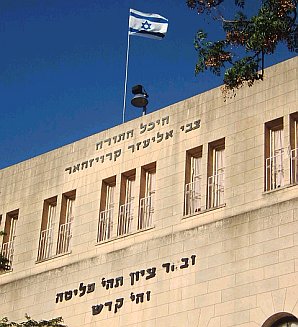
From the founding of political Zionism in the 1890s, Haredi Jewish leaders voiced objections to its secular orientation, and before the establishment of the State of Israel, the vast majority of Haredi Jews were opposed to Zionism. This was chiefly due to the concern that secular nationalism would redefine the Jewish nation from a religious community based in their alliance to God for whom adherence to religious laws were “the essence of the nation’s task, purpose, and right to exists,” to an ethnic group like any other as well as the view that it was forbidden for the Jews to re-constitute Jewish rule in the Land of Israel before the arrival of the Messiah. Those rabbis who did support Jewish resettlement in Palestine in the late 19th century had no intention to conquer Palestine and declare its independence from the rule of the Ottoman Turks, and some preferred that only observant Jews be allowed to settle there.
Marom is the Masorti movement’s organization for students and young adults, providing activities based on religious pluralism and Jewish content.
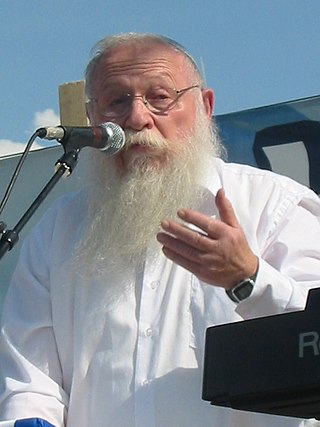
Haim Drukman was an Israeli Orthodox rabbi and politician. The most senior spiritual leader of the Religious Zionist community at the time of his death, he served as rosh yeshiva (dean) of Yeshivat Or Etzion, and head of the Center for Bnei Akiva Yeshivot.

The baal teshuva movement is a description of the return of secular Jews to religious Judaism. The term baal teshuva is from the Talmud, literally meaning "master of repentance". The term is used to refer to a worldwide phenomenon among the Jewish people.

David Rotem was an Israeli politician. He served as a member of the Knesset for Yisrael Beiteinu between 2007 and 2015.
The Leadership Council of Conservative Judaism, also known as the LCCJ, is a council made up of members of the various arms of the Conservative movement, a formal movement within the Jewish denomination of Conservative Judaism.

Masorti Olami is the international umbrella organization for Masorti Judaism, founded in 1957 with the goal of making Masorti Judaism a force in the Jewish world. Masorti Olami is affiliated with communities in over 36 countries, representing with partners in Israel and North America close to two million people worldwide, both registered members and non-member identifiers. Masorti Olami builds, renews, and strengthens Jewish life throughout the world, with efforts that focus on existing and developing communities in Europe, Latin America, the former Soviet Union, Africa, Asia, and Australia. More than 140 kehillot (communities) are affiliated with Masorti Olami in Argentina, Aruba, Australia, Bolivia, Brazil, Chile, Colombia, Cuba, the Czech Republic, Ecuador, El Salvador, France, Germany, Honduras, Hungary, India, Israel, Italy, Japan, Kenya, Mexico, the Netherlands, Paraguay, Peru, Poland, Portugal, Russia, South Africa, Spain, Sweden, Uganda, Ukraine, Uruguay, the United Kingdom and additionally, more than 600 in Canada and the United States and over 80 communities in Israel. All of Masorti Olami's activities are conducted within the context of the overall Conservative Judaism movement, in close cooperation with its affiliated organizations in North America and Israel. The current executive director is Rabbi Mauricio Balter.
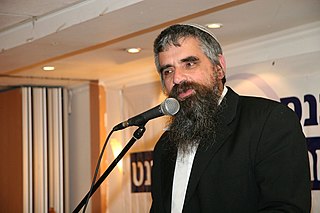
Yuval Cherlow is a Modern Orthodox rabbi and posek. He is Rosh Yeshiva of Yeshivat Hesder Amit Orot Shaul in Tel Aviv, Israel. Cherlow was one of the founders of Tzohar, an organization of religious Zionist Orthodox rabbis in Israel.
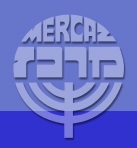
Mercaz USA, officially Mercaz - The Movement to Reaffirm Conservative Zionism Inc, is a 501(c)(3) nonprofit organization focused on Zionism and Conservative Judaism, headquartered in New York City.

The Kotel compromise is a compromise reached between orthodox and non-orthodox Jewish denominations, according to which the non-Orthodox "mixed" prayer area for men and women was supposed to be expanded in the southern part of the Western Wall. In contrast to the existing situation, access to this "mixed" prayer area was supposed to be from the main entrance to the Western Wall, and in addition it was supposed to be run by a council which would contain representatives of the non-Orthodox denominations and women of the Wall.

Rabbi Mauricio Balter is the executive director of Masorti Olami, the international umbrella organization of the Masorti/Conservative Judaism Movement and MERCAZ Olami, the Movement's Zionist and political arm. As a representative of the Masorti/Conservative Movement, Balter is one of the 37 Directors of the Jewish National Fund and sits on the Education and Community Committee, as well as the Resource Development Committee. Rabbi Balter is founder and member of the Forum for Jewish Renewal in the Negev and founder of the Negev Interfaith Initiative Dialogue. Rabbi Balter serves as an executive member of the World Zionist Organization, a member of the board of governors of KKL-JNF, Keren HaYesod and the Jewish Agency for Israel.

MERCAZ Olami is a Zionist political organization representing the world Masorti/Conservative Movement of Judaism in the World Zionist Organization, Jewish Agency for Israel, Keren Kayemeth Leyisrael and Keren HaYesod.. 'Mercaz' is the Hebrew word for 'center', whilst 'olami' means 'worldwide' or 'global'.















